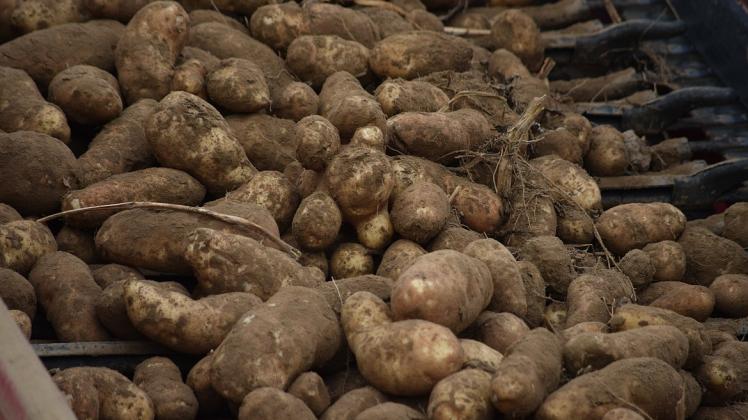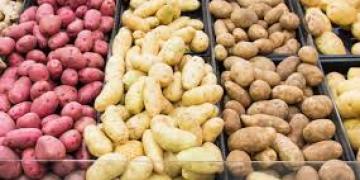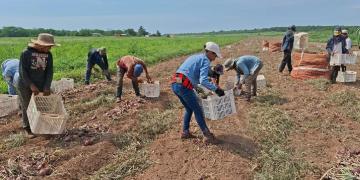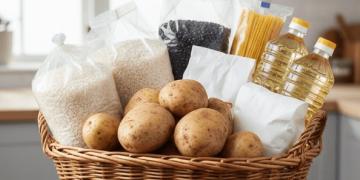EEUU: Heat takes toll on spud harvest
MOSES LAKE — While potato farmers in the Columbia Basin could call on all the water they needed during this year’s drought, the heat still posed risks and has left its mark on this year’s potato crop.

By CHARLES H. FEATHERSTONE
“Yield is down, and quality is also down,” said Adam Weber of Weber Farms near Quincy.
Weber grows potatoes on between 4,000 and 5,000 acres and said the heat was to blame for the drop in yields and quality.
“It’s 10% down, though it varies with varieties,” he said. “I would say they kind of shut down during the heat cycle and they weren’t growing as much.”
“It heated up the soil too much and stressed the plants out too much,” Weber said.
According to Mark Pavek, a professor of potato research with Washington State University Extension, potatoes grow best when the temperatures are around 70-90 degrees Fahrenheit, and when temperatures rise above 95 degrees for too long, potato plants struggle to keep producing tubers when it’s too hot.
Pavek said in the kind of temperatures the Columbia Basin experienced this summer — as high as 115 degrees in and around Moses Lake — the potatoes at greatest risk of being damaged are those closest to the surface.
“Near the surface, the potatoes can actually cook when there’s not much canopy,” Pavek said. “But most potatoes are deeper.”
The heat also damages potatoes and can prompt them to create more sugars as they form, making them a lot less useful for some processed foods like french fries.
“That can lead to darker fries, and a lot of buyers don’t want that,” he said.
The June and July heat also prompted some potatoes closer to the surface to sprout, which forces the tuber to break down some of the starches it creates and stores as it tries to grow another plant.
And frankly, the heat can also make potatoes just plain ugly, Pavek added.
“They get knots, cracks and can be malformed,” he said. “We’re seeing more external defects.”
The last time the region saw something similar was a 30-day stretch of temperatures over 100 degrees back in 1971, Pavek said.
However, Pavek said because so many potatoes are going straight into storage, and will stay there for up to a year, it will be difficult to determine just how badly the sustained summer heat has affected the 2021 potato crop.
“We don’t know the full extent of this year’s damage,” he said.
Weber said the problems caused by the heat came at the worst possible time, noting prices were already low and potato processors had already cut their contracted deliveries by 4% from 2020 in response to the COVID-19 pandemic, which itself prompted cancellation of contracts and a number of growers and processors to give away potatoes or sell them for animal feed.
“On a per-acre basis, revenues are down pretty significantly,” Weber said. “Costs are up 20%. Fertilizer was a big one, there were tariffs, transportation. Fertilizer went up the most.”
Weber said labor was also tough to find, fuel was costlier and equipment and spare parts were harder to obtain and more expensive, as well.
While water for Columbia Basin growers like Weber Farms was abundant, Weber said they had to use more of it to counter the effects of the heat, and so the per-acre cost of irrigation went up as well.
“We didn’t run out, but a primary pump went down during the heat, and that didn’t help,” he said. “Still, this is the best place in the world to grow potatoes.”
Fuente: https://columbiabasinherald.com/news/2021/nov/22/heat-takes-toll-spud-harvest/




